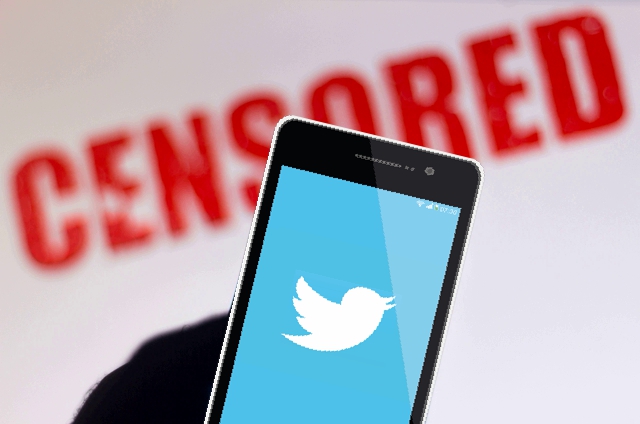Twitter announces it is reactivating its Civic Election Integrity enforcement ahead of the midterm elections in the US, including flagging, removing, and redirecting “misleading” posts while prebunking narratives the big tech company considers “misinformation.”
“Today, as we do ahead of other global elections, we’re activating enforcement of our Civic Integrity Policy for the 2022 US midterms,” the social media company published on Thursday.
“We’re also bringing back prebunks […] to get ahead of misleading narratives on Twitter, and to proactively address topics that may be the subject of misinformation” — Twitter, August 11, 2022
As part of this reactivation of enforcement, Twitter will look to suppress content it deems “false” or “misleading” through a number of actions including:
- Slapping a “false” or “misleading” warning label on certain posts
- Showing users a prompt prior to liking or sharing labeled tweets, and in cases where there is potential for harm associated with the false or misleading claim
- Not recommending certain content
- Not amplifying certain content
- Taking away the ability to like a post
- Taking away the ability to share a post
- Removing the content altogether
In Thursday’s blog post, the big tech company boasted about how effective its warning labels were in decreasing engagement on flagged posts.
“Late last year, we tested new misleading information labels and saw promising results,” the blog reads, adding, “We also saw notable decreases in engagement with Tweets labeled with the new design: -13% in replies, -10% in Retweets and -15% in likes.”
“Over the coming months, we’ll place prompts directly on people’s timelines in the US and in Search when people type related terms, phrases, or hashtags” — Twitter, August 11, 2022
The types of content Twitter will once again be suppressing include:
- Claims about how to participate in a civic process like how to vote
- Misleading content intended to intimidate or dissuade people from participating in the election
- Misleading claims intended to undermine public confidence in an election – including false information about the outcome of the election
And just like with previous elections, Twitter will attempt to redirect users to “credible” and authoritative sources with its warning labels.
The social media company added that last year, “the new labels increased click through rates by 17%, meaning more people were clicking labels to read debunking content.”
“Late last year, we tested new misleading information labels and saw promising results […] We also saw notable decreases in engagement with Tweets labeled with the new design: -13% in replies, -10% in Retweets and -15% in likes” — Twitter, August 11, 2022
Posts that are generally not in violation of Twitter’s policy on elections include:
- Inaccurate statements about an elected or appointed official, candidate, or political party
- Organic content that is polarizing, biased, hyperpartisan, or contains controversial viewpoints expressed about elections or politics
- Discussion of public polling information
- Voting and audience participation for competitions, game shows, or other entertainment purposes
- Using Twitter pseudonymously or as a parody, commentary, or fan account to discuss elections or politics
“In the battle for hearts and minds of human beings, narrative will consistently outperform data in its ability to influence human thinking and motivate human action” — World Economic Forum’s Davos Agenda, 2015
Twitter is also bringing back “prebunks,” for narrative control, which are specifically designed “to get ahead of misleading narratives on Twitter, and to proactively address topics that may be the subject of misinformation.”
The big tech company also promised to “place prompts directly on people’s timelines in the US and in Search when people type related terms, phrases, or hashtags.”
Around August, 2020, Twitter began flagging links to Bitchute as potentially harmful and unsafe, regardless of the actual content of the videos that users are attempting to share.
For example, the big tech company would flag a video hosted on Bitchute as being unsafe, but would not flag the very same video if it were hosted on YouTube.
“Twitter is sabotaging public discourse regarding important national and homeland security issues” — DHS Acting Secretary Chad Wolf, October, 2020
In October, 2020, DHS Acting Secretary Chad Wolf berated former Twitter CEO Jack Dorsey in an open letter claiming that Twitter intentionally censored a tweet from the Customs and Border Protection (CBP) acting commissioner for no other reason than “ideological disagreement with the speaker.”
“Twitter is sabotaging public discourse regarding important national and homeland security issues,” claimed Wolf.
Dorsey was also grilled in the Senate in October, 2020 over the suppression of the New York Post‘s “smoking gun” story on Hunter Biden’s laptop.
“We found that the New York Post — because it showed the direct materials, screenshots of the direct materials, and it was unclear how those were obtained — that it fell under this policy,” Dorsey testified.
The former Twitter CEO later elaborated, stating, “Our team made a fast decision. The enforcement action; however, of blocking urls, both in tweets and in DM (direct messages), we believe was incorrect.”









